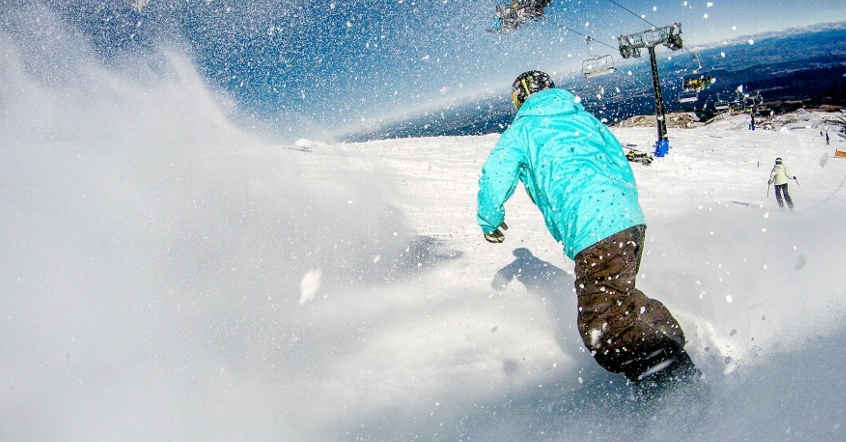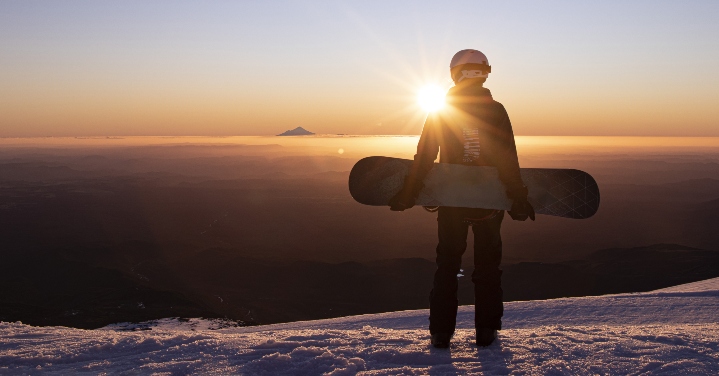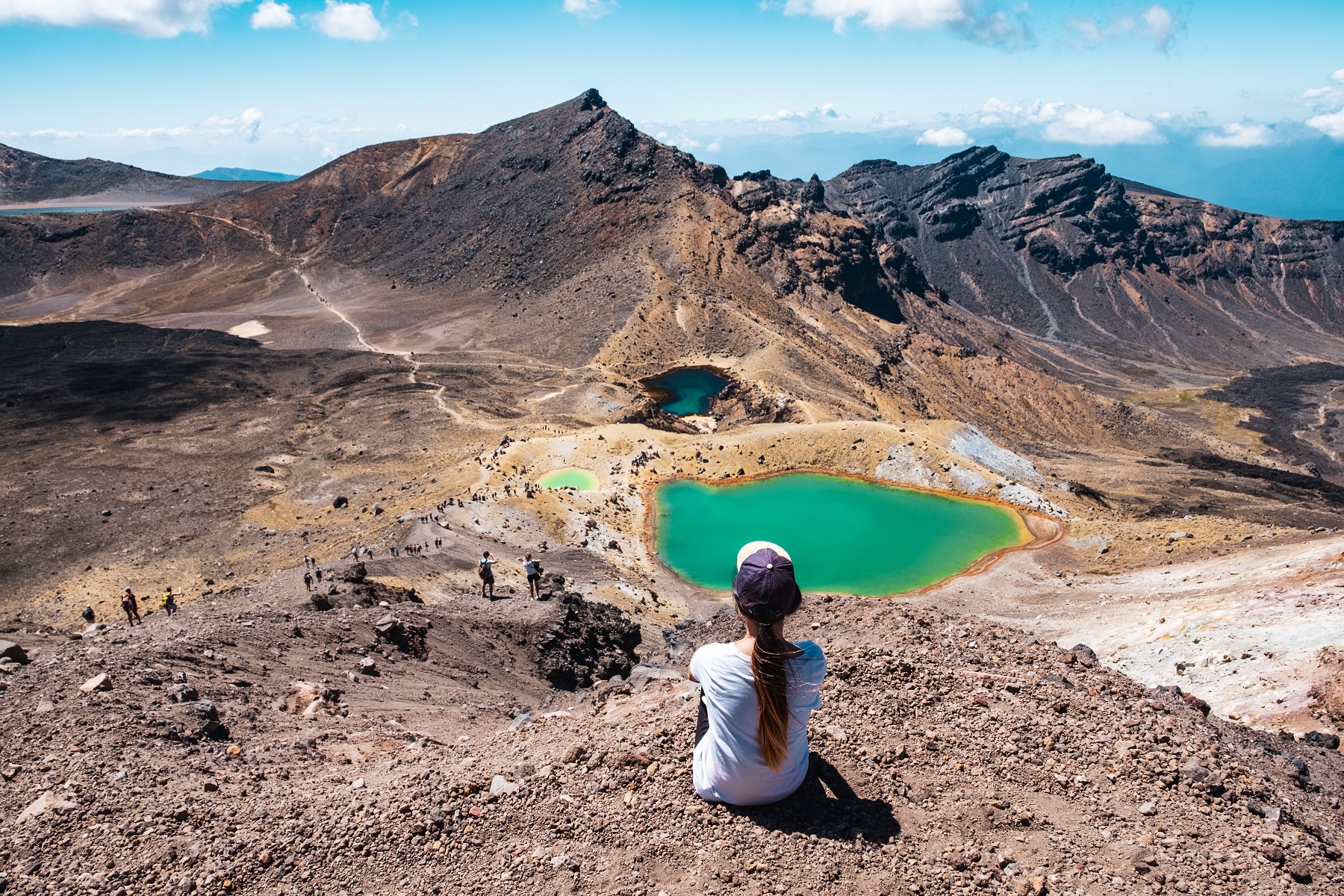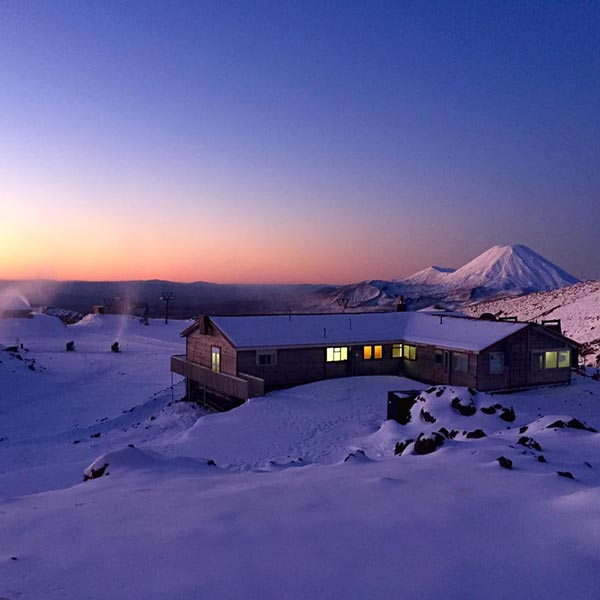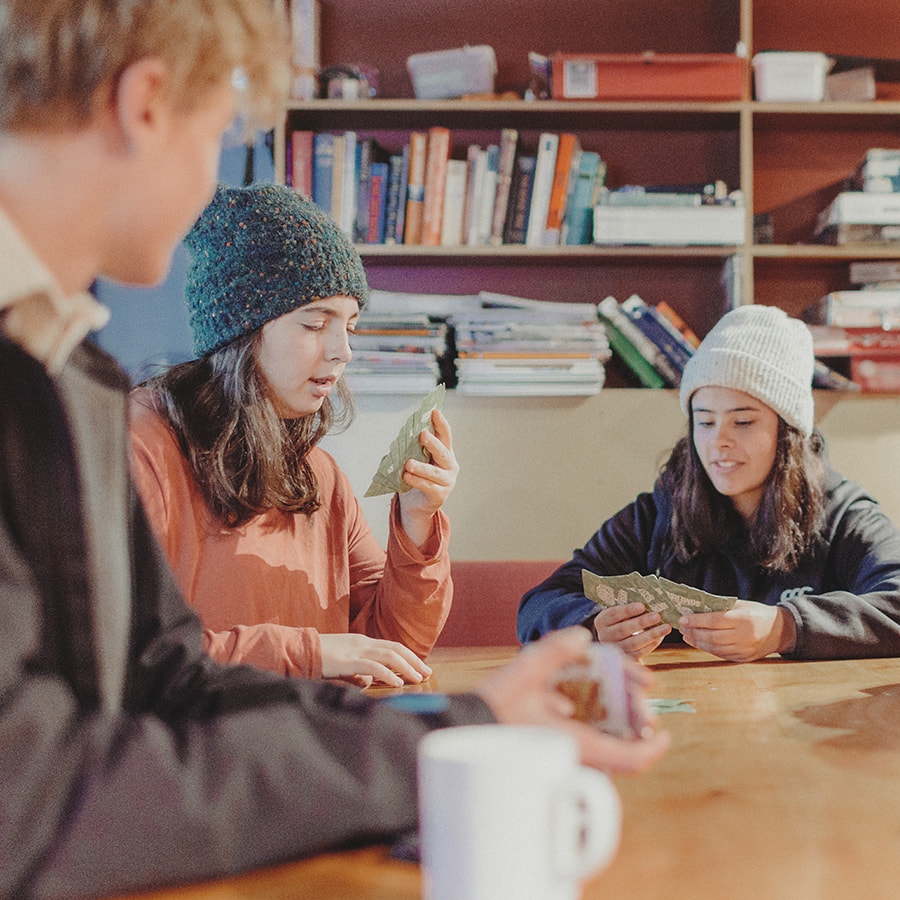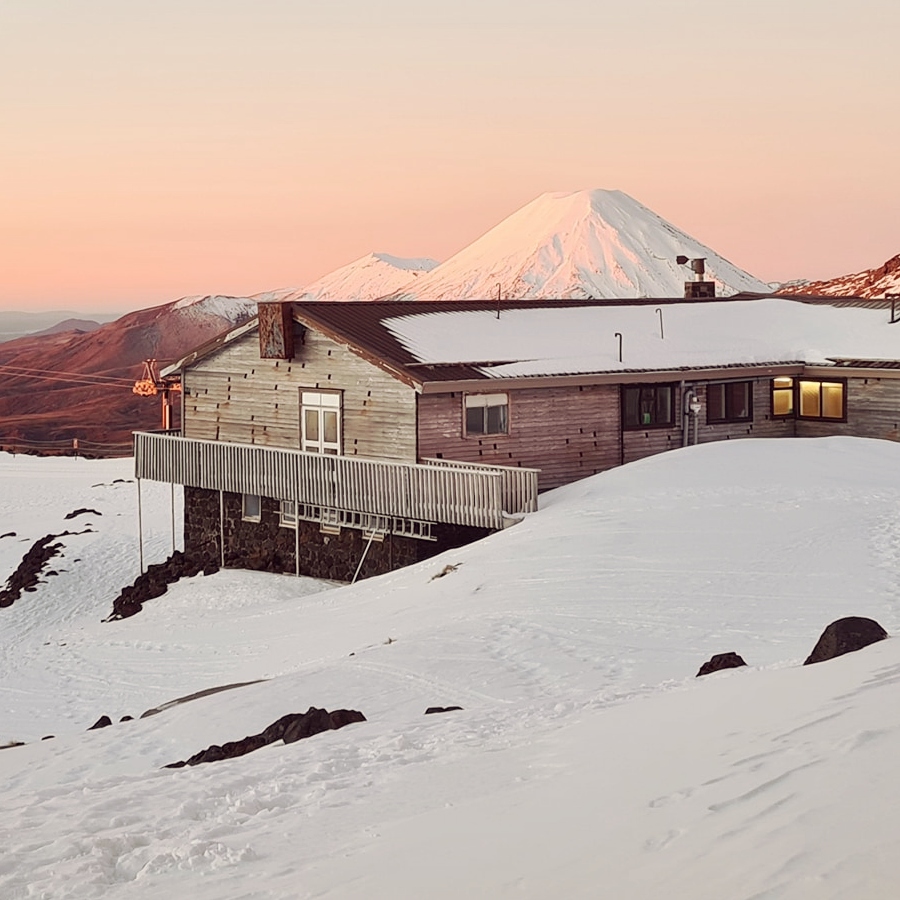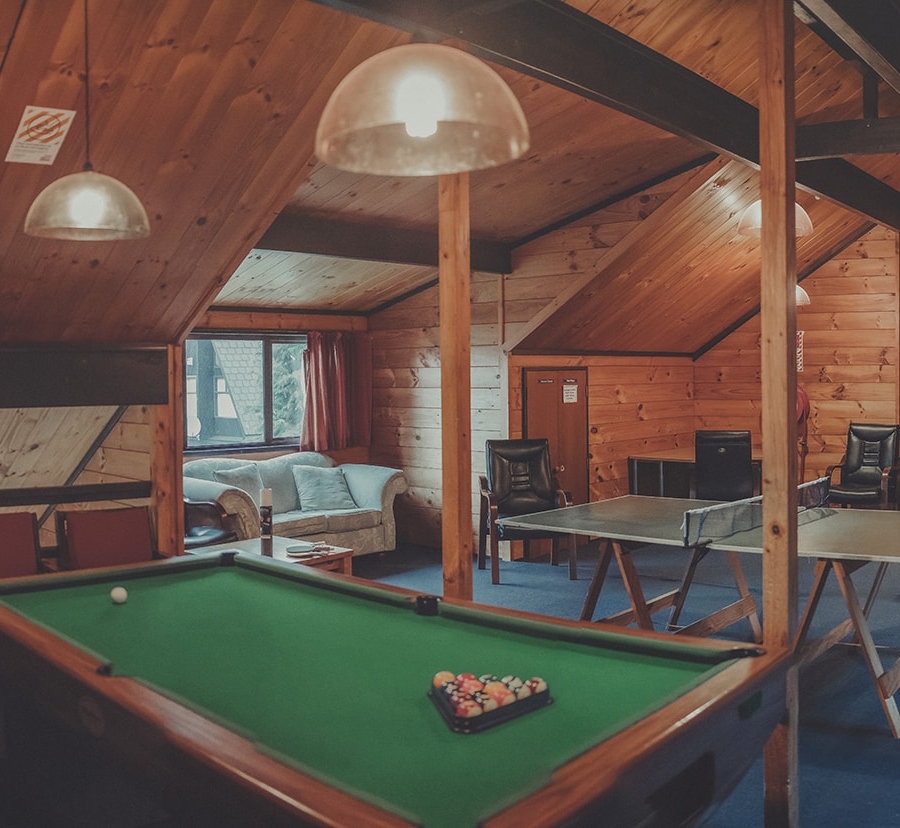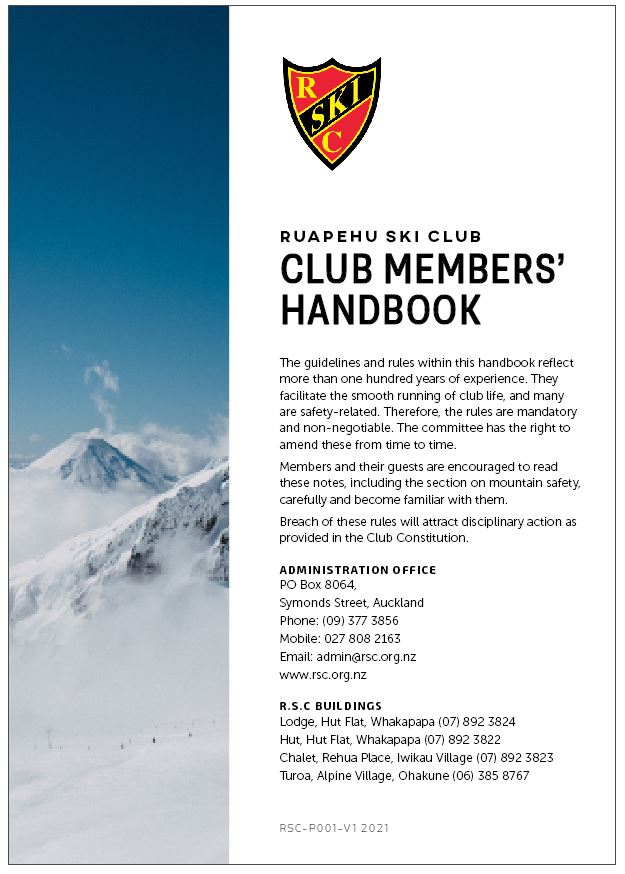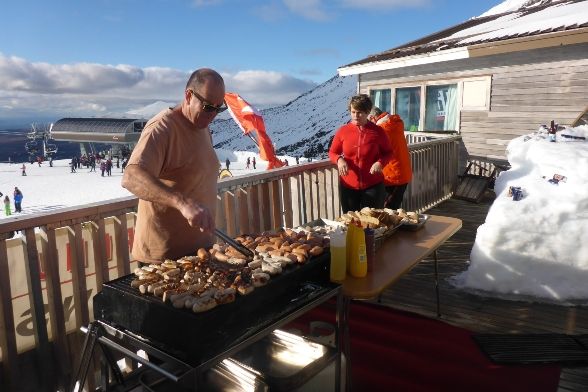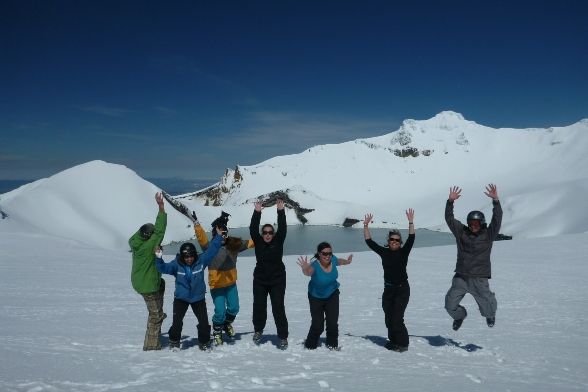No crowds. No stress.
School camps are a tradition of school life in Aotearoa. Stay with us and surround your students with meaningful experiences outside of the classroom in a UNESCO World Heritage Site. Discover outdoor adventures, dramatic landscapes and Māori lore from our affordable lodges.
Staying with us is simple. During winter, our live-in custodians provide three hearty meals daily, and with more than 100 years’ experience of welcoming guests to our lodges, we have an excellent team in place to ensure your school trip runs smoothly.
For more information, or to make a booking contact our office phone 09 377 3856, or email admin@rsc.org.nz
Choose from four lodges
Our lodges are located at Whakapapa Skifield, Whakapapa Village and Ohakune. The two upper mountain lodges at 1,800 metres on the slopes of Mount Ruapehu are accessible by foot, taking about 30 to 45 minutes, when the Rangitira Chairlift is unavailable. Both the lodges at Whakapapa Village and Turoa can be driven to.
For more information on our lodges please visit here.
Why us?
We are the largest ski club on Mount Ruapehu and have the most bunks available to school groups. We are a welcoming club and because we are not a hostel, all guests play an important role in keeping the lodges clean and running smoothly. We offer affordable rates which include meals, warm and cosy accommodation, and a full-time administrator to answer any queries.
Rates
Contact admin@rsc.org.nz, or phone 027 808 2163, for our current group rates.
FAQs
Will we be the only group staying? Unless you book the entire building, you may be joined by another school, or Ruapehu Ski Club members. We always try to accommodate separate bunk room preferences for teachers and male and female students. Chat with us about your needs.
What duties will the students be required to do? Simple duties are allocated daily, with most taking less than half an hour. They range from assisting the cooks, washing dishes to cleaning the bathrooms.
Do you offer group accommodation during summer? Absolutely. We offer heavily discounted self-catered rates outside of the ski season. Contact our administrator for more information.
Have questions about club life?
- All buildings are smoke free.
- You must have your booking authority with you on arrival.
- You must only occupy your allocated bunk.
- On arrival you may occupy your bunk by midday and on day of departure you must vacate by midday.
- Entitlement to meals co-relates to your bookings.
- Duties apply from mid-day to mid-day.
- Residents must take their own pillow-slips and sheets. (No sleeping bags or inners)
- Duvets, blankets, and pillows are provided for all bunks but must not be used without the above. (Defaulters are liable to be fined to cover laundering costs).
- Children under four years of age may not stay in the Lodge or Hut at any time. If free of bed wetting and at the discretion of the committee they may be allowed to stay at the Chalet or Turoa.
- Firearms and pets are prohibited in Club premises and in the Tongariro National Park.
- Ski and snowboard boots are prohibited in the lounge, dining and kitchen areas of all buildings.
- Consumption of alcohol in bunkrooms is forbidden.
- Members, guests, and visitors, who are under the legal drinking age may only consume alcohol as permitted under the law.
- Members and their guests who are visiting buildings, ie not resident in the building, must only use visitors’ toilets and must not enter bunkrooms. (This applies to residents from the Chalet and Turoa visiting high level buildings).
- Visiting members must introduce themselves and their guests to the building leader.
- Name badges should be worn in all buildings for security and social reasons. They are provided to all new members and replacements are available for a small charge.
- Building Leaders are assigned for each building. They are responsible to the committee for the smooth running of the building and are delegated full authority to act on behalf of the committee.
- A daily duty list is posted on the notice board. You are asked to perform your duty as allocated at the time shown.
- Chefs are club staff and are responsible to the committee through the Building Leader. Your dealings with them must be through the Building Leader unless you are assigned to help them with food preparation or kitchen cleaning.
MEALS:
LOCKERS:
ACCESS:
INSURANCE:
FIRE AND SAFETY:
LIGHTS OUT:
TELEPHONES:
DEPARTURE:
ESSENTIALS:
- Bunk Authority
- Building keypad code, name tag
- Sheets, towel and pillowslip
- Suitable footwear and clothing, torch, sunscreen and personal medicines
- Locker keys, mobile phone and charger
- Getting to and from Hut Flat when the lifts are not operating gives rise to additional risk. Usually this means it is dark or the weather is very bad. You will be walking to or from the car park or to or from another lodge. Car Park to Lodge is a 20-30 minute walk.
- Ring ahead and let the Building Leader know you are on the way up then find him/her to confirm your arrival.
- If you are going down let the Building Leader know and then ring from Top of The Bruce to confirm your arrival there. Unless you have a cell phone you will need a phone card to use the public telephone at Top of The Bruce.
- Don’t make the trip alone unless you are sure of the weather. It can be fine at Top of The Bruce and closed in halfway to Hut Flat. Ask the Building Leader what the weather is like when you ring.
- If the weather is bad and you have to make the trip, unless you are absolutely sure of the route and have a cell phone with you, ask the Building Leader to send a couple of members down to walk up with you.
Visiting at Night
- If you are visiting another Club at night, advise the Building Leader of your estimated time of return and ring to let him/her know if your plans change. Let him/her know when you get back.
- Junior members MUST have permission from both parent/sponsor and the Building Leader before leaving the building at night.
NOTES ON MOUNTAIN SAFETY
Injury
- Ski in control.
- Make sure that your bindings are properly adjusted.
- Reduce speed and stay in areas you know when there is poor visibility.
- Don’t ski alone in isolated areas.
- Start slowly each day or stretch to warm up muscles.
- Know when you are tired. An experienced skier catches the chair down when the visibility, the snow conditions, or tiredness make it the smart move. Tiredness is a factor in most skiing injuries and most happen on the last run of the day. Children particularly can tire very suddenly on the mountain.
- Consider using a ski helmet. They are increasingly popular and are particularly recommended for young children.
- Always wear gloves and long trousers. Long sleeves are also a smart move. Snow and ice at speed can be very abrasive. Snow burns can cause lifelong skin problems. Skiing without a shirt at all is dumb.
Exposure
- Weather. Keep an eye on the weather – it can change very quickly.
- Be aware of the forecasts and keep a lookout on cloud wisps coming over the top of the mountain or coming up from below. It can be as little as five minutes from sunny day to whiteout. In a full whiteout you may be totally disoriented, not knowing if you are moving or what is immediately in front of you.
- Be aware also of increasing wind speeds.
Sun
- The sun is much harsher at height because it has less atmosphere to filter it.
- Reflection from the snow can also cause nasty sunburn. Apply sun lotion and lip protection liberally to exposed skin including under the chin and nose, inside the ears, and on the upper eyelids.
Snow Blindness
- Snow blindness is a painful condition caused by excessive ultra violet light in snow reflected sunlight.
- Goggles offer total protection. Even normal optical spectacles reduce UV by 80%.
- Goggles, sun glasses or some other form of eye protection is essential.
Cold
Alcohol
- While alcohol seems to have a warming effect, it in fact dilates the blood vessels and rapidly increases loss of body heat.
- Affects sound judgement.
Wind Chill
- Wind chill is the major cause of life threatening hypothermia. If you are caught out on the mountain when the weather closes in, find shelter from the wind as a priority.
- Dig a snow cave or get behind a bluff, and huddle together to preserve warmth. Once you are warm and secure in a snow cave, don’t leave it until you are sure that the weather has properly cleared.
Children
- Young children lose body heat much faster than adults and tire easily.
- Watch them carefully and, at the first sign of grizzliness, get them inside to a warm drink.
Off Piste
- Never go alone.
- Make sure you tell someone where you are going and how long you expect to be.
- Then do what you said you are going to do.
- Make sure you let them know when you get back.
- Enquire about avalanche conditions from the Ski Patrol before you go.
- Take appropriate clothing for adverse weather in case it changes.
- Take food and drink and ideally a cell phone.
Lahars and Eruptions
- If you are in the buildings, remain there until the all-clear is given or until DOC evacuates everyone. The buildings are located so as to be out of the mud flow paths.
- If the lahar alarm system sounds while you are skiing, head immediately for a ridge line and stay there until the danger passes.
ANNUAL MEMBERSHIP
New members pay a one-off joining fee, an annual membership and discounted accommodation during their stay.
Optional costs include hiring gear and ski lockers, bringing guests and special events.
All new senior members are required to attend two summer work parties to complete their membership while summer members need to attend one party. These provide a great introduction to club life and an opportunity to meet other members. We hold approximately six parties between February and June.
|
Senior - 22 years and older Joining fee: $199 $49.00 |
|
Young Adult - 18 to 21 years old Joining fee: $199 $49.00 |
|
Junior - 8 to 17 years old Joining fee: $99 $49.00 |
|
Member Child - 7 years and younger Joining fee: Free |
Available during the ski season at the Lodge,Chalet, and Turoa.
Includes accommodation and three meals, at the Lodge only.
For membership age breaks check memebership categories above.
| Winter | Catered | Non - Catered | |
| Senior Member | $66.00 | $47.00 | |
| Young Adult | $66.00 | $47.00 | |
| Teen Member | $57.00 | $41.00 | |
| Junior Member | $43.00 | $31.00 | |
| Member's Child | $33.00 | $24.00 | |
| Senior Non - Member | $119.00 | $85.00 | |
| Young Adult Non-Member | $119.00 | $85.00 | |
| Teen Non Member | $103.00 | $74.00 | |
| Junior Non Member | $77.00 | $55.00 | |
| Non Member's Child | $59.00 | $42.00 |
| Summer | |
| Senior Member | $35.00 |
| Young Adult | $35.00 |
| Teen Member | $30.00 |
| Junior Member | $23.00 |
| Member's Child | $18.00 |
| Senior Non - Member | $45.00 |
| Young Adult Non-Member | $45.00 |
| Teen Non Member | $39.00 |
| Junior Non Member | $29.00 |
| Non Member's Child | $23.00 |

